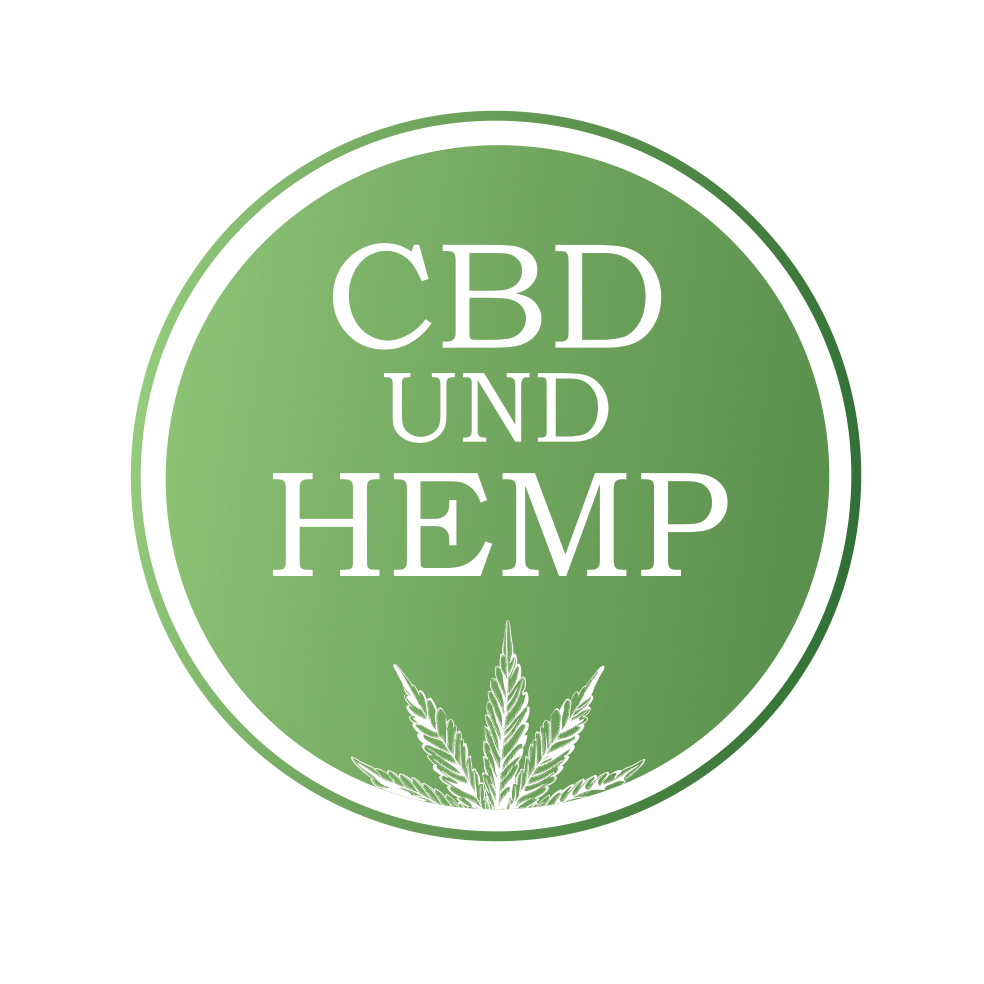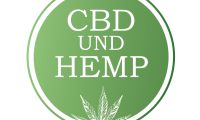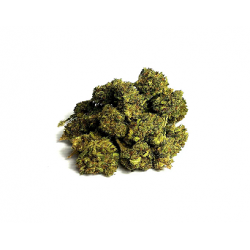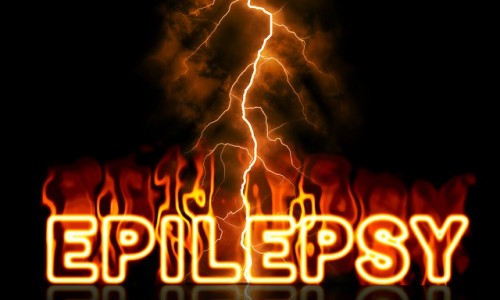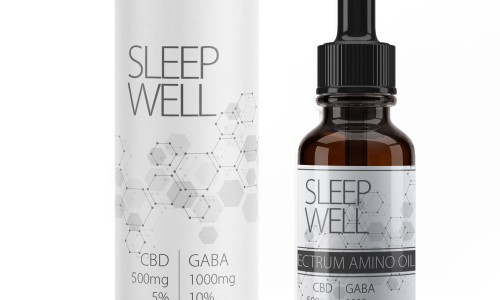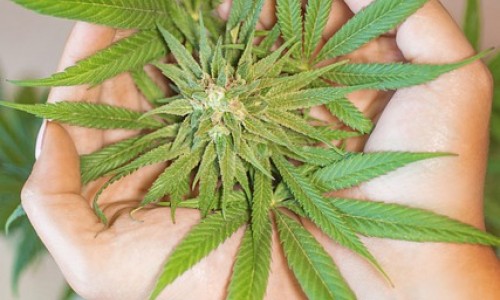- CBD Learn
-
Catalog
-
Shop by Category
Categories
-
Special Offers
-
Bestsellers
Bestsellers
Model: cuh10thc SKU: HC12002It is especially recommended for those who already use CBD-containing products. It has an excellent effect on the immune system, mental problems (anxi..55.91€Nettó ár:46.59€Model: cuh5thc SKU: HC12005This oil is the entry level in pain relief, stress relief, anxiety relief, insomnia overcoming in the world of CBD oils.Full Spectrum -10 ml10ml ≈ 300..30.90€Nettó ár:25.75€Model: cuh2.5thc SKU: HC12004The entry level in the world of CBD oils. It is most recommended for strengthening the immune system and reducing elevated mental conditions during th..18.00€Nettó ár:15.00€Model: cuhgum10 SKU: HC12007The treasures of the CBD in one cubeYou can even use it while driving. It has a delicate and fruity taste.Highly recommended for a quick solution. (eg..33.90€Nettó ár:28.25€Model: cuhthcfrei500 SKU: HC12015The entry-level pain relief in the world of CBD oils is this oil.10 ml ≈ 300 drops, 1 drop ≈ 1.7 mg500 mg CBD / bottleThe recommended dose for adults ..38.40€Nettó ár:32.00€Model: cuhsg10 SKU: HC12008The encapsulated CBD. It is especially recommended for those who want a prolonged effect. The capsule takes effect only 1-3 hours after ingestion (oil..44.90€Nettó ár:37.42€Model: cuhblubarfl15 SKU: HC12009With this product we belong to our HIGH CBD segment. Our extremely high value products are typical of this area.CBD content ~ 15%THC content <0.2%T..14.90€Nettó ár:12.42€Model: cuhflowskunk SKU: HC12024CBD Skunk Outdoor Aroma Flowers are grown under organic conditions. Highly recommended for quick attenuation of elevated conditions. It helps smo..46.79€Nettó ár:38.99€ - See all products
-
Shop by Category
- CBD by area of use
- Special offers
Cart
0
Your shopping cart is empty!
What is CBD? What is the difference between CBD and Cannabis?
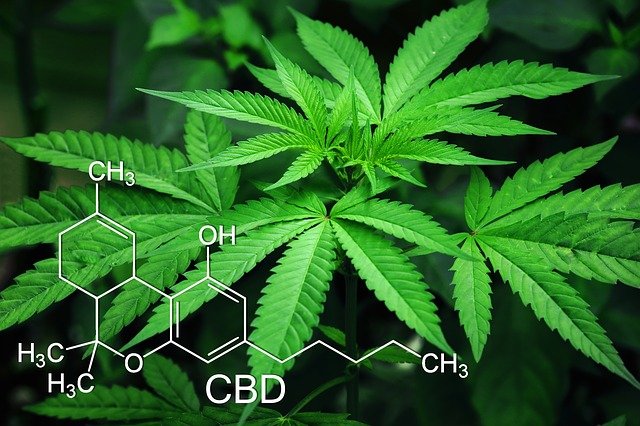
CBD means cannabidiol, which is an active ingredient in the cannabis plant. It is a well-known naturally occurring cannabinoid molecule, or phytocannabinoid, found in the highest amounts in cannabis, i.e., hemp plants, but also in smaller amounts in other plants, such as flax or azaleas. Like THC, CBD is produced in the inflorescence of the plant, with only negligible amounts in the leaves, stems, and seeds.
Science is currently associated with the existence of more than 100 cannabinoids, with CBD being the second best known and researched after THC. CBD, unlike THC, has no psychotropic effect and therefore does not cause poisoning, called “tearing”. This property is beneficial for patients who want to avoid or reduce the mind-altering effects of cannabis, such as children or the elderly.
The CBD has caused a lot of excitement in recent years - and for good reason.
CBD-rich cannabis varieties and oils that have significant therapeutic benefits are often referred to as “not get high medical cannabis”.
Featured Categories
CBD Against Pain
Pain is the first reason people turn primarily to medicated cannabis, and several clinical studies have shown that the cannabis plant can help overcome multiple types of pain.
Just as there isn’t just a kind of cannabis, it’s not just a kind of pain. The three main types are:
Nociceptive pain: The easiest type to understand, nociceptive pain, comes from physical injury; often treated with anti-inflammatory drugs
Neuropathic pain: This can be caused by injury, but is specifically associated with nerve injury. anti-inflammatory drugs are usually ineffective
Central Pain: Sometimes referred to as "mysterious pain," central pain occurs without physical injury. Fibromyalgia is a well-known example.
The good news is that cannabis can treat all three types of pain in different ways.
CBD Products Against Pain
It is especially recommended for those who already use CBD-containing products. ..
55.91€
Nettó ár:46.59€This oil is the entry level in pain relief, stress relief, anxiety relief, insom..
30.90€
Nettó ár:25.75€Full spectrum oil contains all the treasures of hemp.t is especially recommended..
67.91€
Nettó ár:56.59€Highly recommended for those who already use products containing CBD. It has an ..
64.91€
Nettó ár:54.09€It is best recommended to strengthen the immune system and reduce elevated menta..
19.92€
Nettó ár:16.60€The entry-level pain relief in the world of CBD oils is this oil.10 ml ≈ 300 dro..
38.40€
Nettó ár:32.00€This oil contains 500 mg of CBD and 500 mg of CBG.Does not contain THC!Summarize..
64.80€
Nettó ár:54.00€Lack of serotonin, or "pleasure hormone," has been linked to many diseases, such..
45.60€
Nettó ár:38.00€This oil is especially recommended for people with persistent pain. It helps red..
144.90€
Nettó ár:120.75€CBD Products against Mental Problems
This oil is the entry level in pain relief, stress relief, anxiety relief, insom..
30.90€
Nettó ár:25.75€The entry level in the world of CBD oils. It is most recommended for strengtheni..
18.00€
Nettó ár:15.00€It is best recommended to strengthen the immune system and reduce elevated menta..
19.92€
Nettó ár:16.60€The entry-level pain relief in the world of CBD oils is this oil.10 ml ≈ 300 dro..
38.40€
Nettó ár:32.00€Lack of serotonin, or "pleasure hormone," has been linked to many diseases, such..
45.60€
Nettó ár:38.00€Stress relieving CBD 500 mg + glutamine Our 1000 mg product effectively combines..
45.60€
Nettó ár:38.00€The encapsulated CBD. It is especially recommended for those who want a prolonge..
44.90€
Nettó ár:37.42€The treasures of the CBD in one cubeYou can even use it while driving. It has a ..
33.90€
Nettó ár:28.25€CBD against Mental Problems
Depression and anxiety disorders are common mental illnesses that can have a lasting impact on a person’s health, social life, ability to work and general well-being.
Your doctor may prescribe medication to treat or treat your depression. Many of these medications have serious side effects, such as mood swings, insomnia, and sexual dysfunction.
CBD has promised to treat depression and anxiety in early studies and can cause fewer side effects in some people.
2014 research may explain why CBD can be helpful in treating depression. They point out that in most studies, CBD has a positive effect on the brain’s serotonin receptor.
Serotonin affects many functions of the body, including a person’s emotional state as well as well-being or happiness. Balancing serotonin levels is often a key therapy for people with depression.
The compound has a clear anti-stress effect after short or long-term use. In some tests, CBD acted as an antidepressant.
The researchers also found that the compound functioned without direct activation of brain endocannabinoid receptors, which may indicate that CBD poses a lower risk of dependence or dependence.
CBD Against Insomnia
CBD Against Insomnia
- To understand whether CBD can improve sleep, we must first understand what causes poor sleep.There are many reasons for insomnia. According to the Mayo Clinic, insomnia can be caused by:
- Mental disorders such as anxiety, post-traumatic stress disorder (PTSD) and depression
- Medicines that may disrupt the sleep-wake cycle
- Physical complaints such as chronic pain
- Caffeine, especially if consumed late
- Environmental factors such as loud noise or uncomfortable beds
If your insomnia is caused by external factors or related conditions, the CBD can help treat the causes of the insomnia.The dosage of CBD and how long you take it depend on a number of factors. Body weight, personal body chemistry, and the nature of sleep problems all affect CBD function. What works for some may not be right for others.In most clinical trials of CBD and sleep, subjects received 25 mg and 1500 mg of CBD daily. It’s best to start with a low dose and gradually increase until we find something that suits you.Much of the research on CBD, anxiety, and sleep has found that many patients do not notice an immediate difference. The aforementioned 2019 study found that subjects took about a month to notice the difference. Be patient and keep in mind that you are unlikely to get immediate results.
CBD Against Insomnia
With this product we belong to our HIGH CBD segment. Our extremely high value pr..
59.04€
Nettó ár:49.20€CBD Skunk Outdoor Aroma Flowers are grown under organic conditions. Highly ..
46.79€
Nettó ár:38.99€Highly recommended for those who already use products containing CBD. It has an ..
64.91€
Nettó ár:54.09€10 ml of CBD full spectrum oil (containing 500mg CBD) in combination with 1000mg..
45.60€
Nettó ár:38.00€Stress relieving CBD 500 mg + glutamine Our 1000 mg product effectively combines..
45.60€
Nettó ár:38.00€It is especially recommended for those who already use CBD-containing products. ..
55.91€
Nettó ár:46.59€Full spectrum oil contains all the treasures of hemp.t is especially recommended..
67.91€
Nettó ár:56.59€This oil is the entry level in pain relief, stress relief, anxiety relief, insom..
30.90€
Nettó ár:25.75€Products against acute diseases
Full spectrum oil contains all the treasures of hemp.t is especially recommended..
67.91€
Nettó ár:56.59€This oil is especially recommended for people with persistent pain. It helps red..
144.90€
Nettó ár:120.75€The treasures of the CBD in one cubeYou can even use it while driving. It has a ..
33.90€
Nettó ár:28.25€The taste is similar to juicy melon. Excellent stress relieving effect.With..
58.98€
Nettó ár:49.15€This oil contains 500 mg of CBD and 500 mg of CBG.Does not contain THC!Summarize..
64.80€
Nettó ár:54.00€10 ml CBD is a full-spectrum oil supported by the power of L-arginine for men’s ..
45.60€
Nettó ár:38.00€Lack of serotonin, or "pleasure hormone," has been linked to many diseases, such..
45.60€
Nettó ár:38.00€CBD Skunk Outdoor Aroma Flowers are grown under organic conditions. Highly ..
46.79€
Nettó ár:38.99€CBD against acute diseases
Products against acute diseases
The endocannabinoid system is involved in regulating various functions of the body, including mood, behavior, appetite, pain, sleep, energy, and more. In addition, the endocannabinoid system is responsible for cell growth and apoptosis.
Because cancer is caused by the proliferation and mutation of abnormal cells, the medicinal cannabinoids found in cannabis oil are known to help kill abnormal cancer cells, especially in the early stages of cancer.
Apoptosis is a natural process in the body in which cells are killed as part of the growth of a particular organism. As mentioned earlier, cancer cells grow in the body as a pathological process because they no longer recognize a signal from the body that stimulates or kills cell growth. As these cells grow and divide, they become more uncontrollable. And because they no longer respond to apoptosis, they tend to accelerate cell proliferation and ignore other signs of "normal cells." Therefore, the endocannabinoid system is an extremely important system in the body as it also helps to modulate cell growth and death.
Because cancer cells proliferate faster than the endocannabinoid system can process, cancer cells penetrate normal tissue and spread throughout the body. This process is known as metastasis.
The endocannabinoid system has two primary receptors. One is the CB1 receptor, which is found primarily in the brain, and the other is the CB2 receptor, which is found primarily in the immune system. THC is an active component of cannabis that binds to CB1 receptors and is responsible for mood, behavior, and other brain functions. On the other hand, CBD blocks CB2 receptors and tells these receptors, if any, that they are harmful to the body.
After binding, activation of the receptor may assist the endocannabinoid system in antitumor warning. This means that it inhibits carcinogenesis by inhibiting reproduction, metastases, and tumor angiogenesis.
Although further claims need to be reviewed to support these claims, the cannabinoids in cannabis oil have undoubtedly helped cancer patients one way or another. Chemotherapy patients also turned to cannabis oil to relieve their post-chemotherapy side effects such as nausea, vomiting, fatigue, inflammation, neuropathic pain, immunosuppression, and anorexia.
CBD against immune and autoimmune diseases
Cbd against immune and autoimmune diseases
Az élet időnként fájdalmas. Ha azonban ezeket a tüneteket olyan autoimmun betegség okozza, mint a lupus, a reumás ízületi gyulladás, a sclerosis multiplex vagy az 1-es típusú cukorbetegség, nehéz enyhülést találni. Jó hír, hogy a kannabisz segített a betegségben szenvedőknek magasabb életminőségben élni.
Az autoimmun betegségek olyan betegségek, amelyekben az ember immunrendszere megtámadja saját testét. Az immunrendszer a vírusokra és más kórokozókra összpontosít, és általában meg tudja különböztetni az idegen betolakodókat saját sejtjeitől. Amikor azonban az egészséges sejteket idegen betolakodóként látja, háborút indít a teste ellen, és antitesteket küld az egészséges szövetek, például ízületek, szervek vagy bőr megtámadására.
Az elsődleges kezelések olyan gyógyszerek, amelyek csökkentik a gyulladást és megnyugtatják a szervezet immunválaszt. Egyes kezelések immunszuppresszánsok alkalmazását jelentik az immunrendszer elnyomására vagy teljes kikapcsolására.
A probléma az, hogy ezeknek a kezeléseknek számos nemkívánatos mellékhatása van, és az immunrendszer kikapcsolása negatív következményekkel járhat. Szükségünk van alternatív kezelési lehetőségekre, és sokan felfedezik a kannabisz jobb életminőségét.
Az autoimmun betegségben szenvedők már régóta sikeresen használták a kannabiszt - és a fájdalomcsillapítás csak a jéghegy csúcsa. A tudósok kezdik megérteni, hogy a kannabisz túlmutat az autoimmun betegségek tüneteinek enyhítésén. Valójában úgy tűnik, hogy a kannabisz közvetlenül kötődik az immunsejtekhez az endokannabinoid rendszer (ECS) befolyásolásával. Az ECS fontos szerepet játszik az immunfunkció szabályozásában. Az immunsejtek mind CB1, mind CB2 receptorokkal rendelkeznek, és a kannabisz olyan kannabinoidokat tartalmaz, amelyek kölcsönhatásba lépnek mindkét ECS receptorral.
A kannabinoidok kulcsként nyitják meg az ajtót, amely lehetővé teszi a kommunikációt a test és az immunrendszer között. Ha az immunrendszer folyamatosan túlterhelt, a kannabiszból származó kannabinoidok stimulálhatják az egészséges sejtek elleni harc lelassulását és könnyebbé válását.
Our outdoor aroma flowers are grown in Austria under ecological conditions. All ..
39.60€
Nettó ár:33.00€The encapsulated CBD. It is especially recommended for those who want a prolonge..
44.90€
Nettó ár:37.42€With this product we belong to our HIGH CBD segment. Our extremely high value pr..
59.04€
Nettó ár:49.20€It is especially recommended for those who already use CBD-containing products. ..
55.91€
Nettó ár:46.59€Stress relieving CBD 500 mg + glutamine Our 1000 mg product effectively combines..
45.60€
Nettó ár:38.00€This oil contains 500 mg of CBD and 500 mg of CBG.Does not contain THC!Summarize..
64.80€
Nettó ár:54.00€This oil is especially recommended for people with persistent pain. It helps red..
144.90€
Nettó ár:120.75€Full spectrum oil contains all the treasures of hemp.t is especially recommended..
67.91€
Nettó ár:56.59€CBD for vitality & immune boosting
The entry level in the world of CBD oils. It is most recommended for strengtheni..
18.00€
Nettó ár:15.00€This oil is the entry level in pain relief, stress relief, anxiety relief, insom..
30.90€
Nettó ár:25.75€It is best recommended to strengthen the immune system and reduce elevated menta..
19.92€
Nettó ár:16.60€The entry-level pain relief in the world of CBD oils is this oil.10 ml ≈ 300 dro..
38.40€
Nettó ár:32.00€10 ml CBD is a full-spectrum oil supported by the power of L-arginine for men’s ..
45.60€
Nettó ár:38.00€Full spectrum oil contains all the treasures of hemp.t is especially recommended..
67.91€
Nettó ár:56.59€10 ml of CBD full spectrum oil (containing 500mg CBD) in combination with 1000mg..
45.60€
Nettó ár:38.00€Stress relieving CBD 500 mg + glutamine Our 1000 mg product effectively combines..
45.60€
Nettó ár:38.00€Lack of serotonin, or "pleasure hormone," has been linked to many diseases, such..
45.60€
Nettó ár:38.00€CBD for wellbeing
CBD for good health
The human body is exposed to many diseases, infections, viruses and bacteria every day. Without an immune system, even the most common disease can be fatal. The immune system is the arrangement of cells, tissues, and organs that work together to eliminate foreign particles and invaders. That's fine.
Your immune system is also responsible for recognizing and removing defective cells in the body. The immune system must remove these cells to stop them from growing, which can lead to tumors.
CBD AND THE IMMUNE SYSTEM
Cannabidiol can help boost the immune system. In fact, research has shown that CBD has anti-inflammatory properties and can act as an immunosuppressant and immunomodulator.
For example, inflammation is one of the most important processes in the body's immune system. This helps to isolate the infected areas and prevents the spread of toxic components to other parts of the body. CBD contains anti-inflammatory elements that help reduce the inflammatory response of the immune system.
In addition, CBD may help modulate or suppress cytokine function and secretion. These are large groups of proteins that are secreted by the body's immune system. It helps regulate inflammation, immunity and white blood cell production. All of this promotes a smarter functioning and health of the immune system.
Secure payment with Paypal
We do not store credit card information (Paypal)
CBD Learn - CBD 101
0
185
Against epilepsy with CBD? How? However, there is a positive potential for CBD for epileptic kennels, which can be reduced to a specific type of disease. Das Erscheinen von Charlotte Figis Geschichte in the media can be used as a means and the CBD can be used to reduce the risk of epilepsy and treatment. If interesting, these CBD products are used as a consumer and can all be used as a cannabis drug. The art of CBD, which can be found in the company or in the online shop, is also available.
0
384
Both GABA and CBD have beneficial and calming effects on the human brain and nervous system. This effect is immediate after revenue, depending on the amount. Relaxing, balanced sleep contributes to the body’s healing processes. Because of its natural ingredients, CBD - GABA consumers are less afraid of developing addictive conditions that can be caused by long-term consumption of sleeping pills and sedatives.
0
388
Because L-arginine plays so many critical roles in your body, a lack of this amino acid can disrupt the function of cells and organs and lead to serious adverse health consequences. L-Arginine and CBD do not affect each other. The positive effects of both CBD and Arginine are retained. L-Arginine is useful in controlling blood pressure, controlling blood sugar levels, and treating critical diseases of erectile dysfunction to improve PCOS conditions.
0
459
CBG may be able to improve the following health conditions: Inflammatory bowel disease. CBG appears to reduce inflammation associated with inflammatory bowel disease (research in mice) Glaucoma. Medical cannabis appears to be effective in the treatment of glaucoma, and CBG may be responsible in part for its effectiveness. A study published in 2008 suggests that CBG may be effective in treating glaucoma because it reduces intraocular pressure. Bladder dysfunctions. Some cannabinoids appear to affect bladder contractions. A 2015 study looked at how five different cannabinoids affect the bladder and concluded that CBG shows the most promise in treating bladder dysfunctions. Huntington's disease. CBG may have neuroprotective properties in a neurodegenerative disease called Huntington's disease. The study concluded that CBG may be promising in the treatment of other neurodegenerative conditions. Bacterial infections. CBG can kill bacteria, especially methicillin-resistant Staphylococcus aureus (MRSA), which causes drug-resistant infections. These infections are difficult to treat and can be quite dangerous. Cancer. A 2014 study examined colon cancer in rats and concluded that CBG may reduce the growth of cancer cells and other tumors. Anorexia. A 2016 study in rats concluded that CBG stimulates appetite. Appetite-stimulating cannabinoids can be used to help patients such as HIV or cancer.
0
475
CBG is believed to directly elicit its therapeutic effects despite interacting with the brain's CB1 and CB2 cannabinoid receptors. Inflammation is reduced, as shown by animal models of inflammatory bowel disease. Fighting Huntingdon's disease, again through its neuroprotective effects. Inhibition of tumor growth in animal models of colon cancer. Destruction of drug-resistant bacteria such as methicillin-resistant Staphylococcus aureus (MRSA) Bladder dysfunction and tumor
